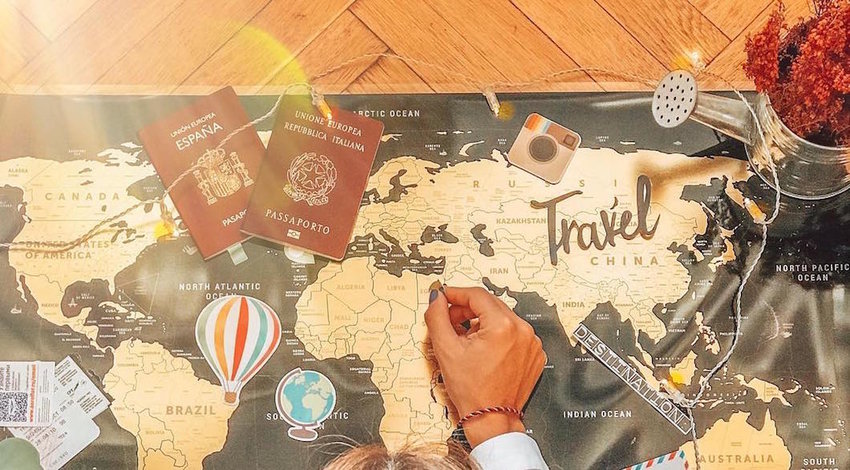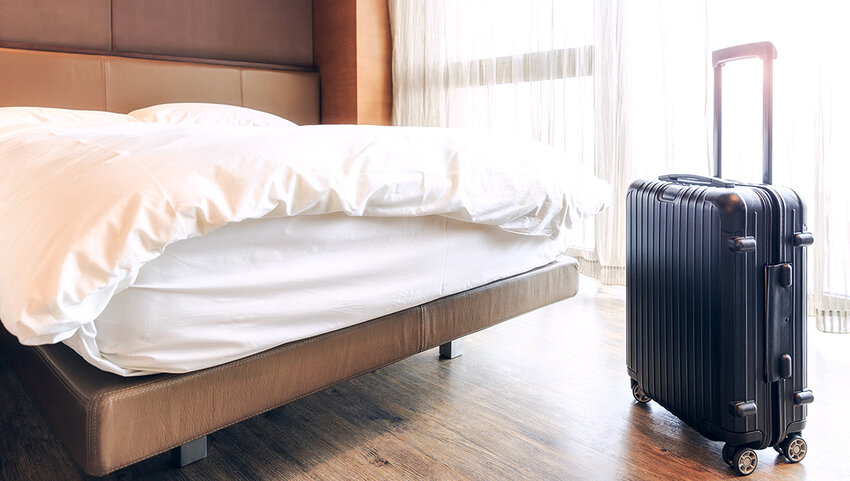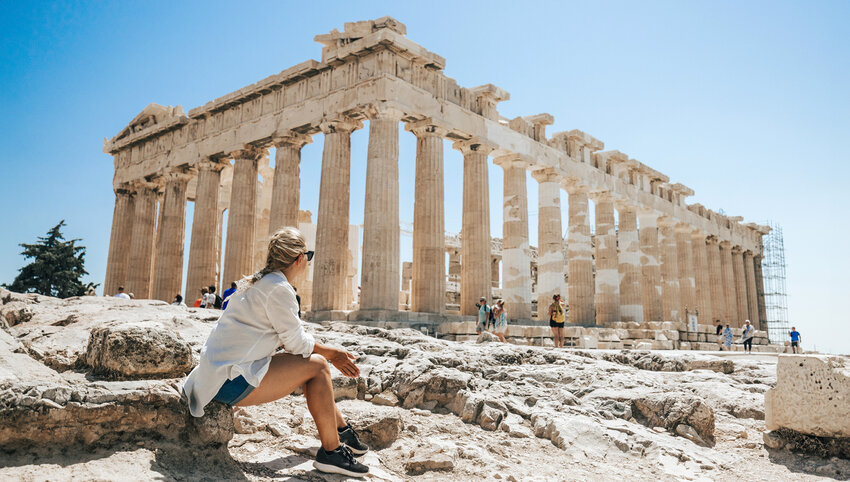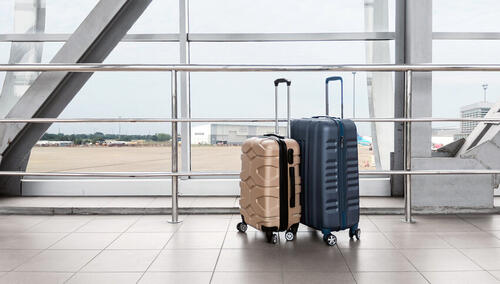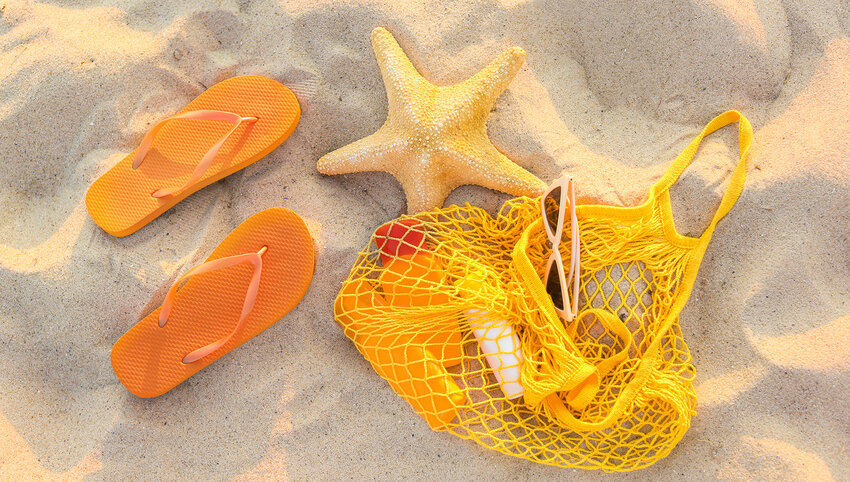Traveling is meant to be an enjoyable experience, something we do to explore our world, taste new cultures and open our horizons. But any trip without planning can end up in different disastrous scenarios, ranging from missing essential spots to ending up in the middle of a typhoon.
As the professional Travel Influencer that I am, I have learned many lessons over time, and as a result I have come up with a checklist that I follow for every place I'm heading to. Let me share with you my essential travel tips in a timeline before you embark to your "nextination."
3 months before departure date: Where to go?
The first step to any trip is deciding where to go. Sounds obvious, but it's actually the cornerstone of your whole experience. Traveling is a very personal experience, and this decision is influenced by several factors like:
- What kind of experience are you looking for? Relaxing, adventurous, culinary, cultural, retreat?
- Who would be your entourage? Are you traveling solo? Couple getaway? Family vacations?
- When are you planning to go? Public holidays? Vacation time? Summer? Winter? Are you flexible?
The answer to all these questions will help you shape the early stages of your trip and narrow down the potential locations you could have at your disposal.
Typically, you should avoid going to any destination during its high season because that means it will be overcrowded and more expensive. But on the other hand, the high season is usually the best time of the year to go visit. Low season has the best value deals and much fewer tourists.
Most of the times, seasonality is aligned with the weather pattern of the places. There are some factors you can consider:
Avoid extreme weather: June to late September is the hurricane season for the Caribbean Sea and typhoon season in South East Asia. During this time there are big chances that your trip to any of these destinations will encounter rain. Also, in desert areas like the Emirates, Egypt and Qatar, or Arizona and Nevada in the U.S., summer can reach extremely high temperatures.
Go to the other hemisphere: Your summer is the winter in the opposite hemisphere of the world, and vice-versa. This fact can open exciting possibilities for traveling to places you didn't think about before. Your melting summer in Europe can be an excellent time to ski in Argentina, for example.
Go a bit later from the end of the high season: If you travel just after the high season you might still enjoy the good weather for a couple of more weeks with less of the crowds.
Beware of the Chinese New Year: As Chinese tourists are increasing in numbers every year, they peak during their homeland public holidays, in particular, Chinese New Year and the Golden Week at the beginning of October. Traveling to China and to nearby South East Asia destinations, such as Thailand, Cambodia, Vietnam, Bali, etc., during these periods should be avoided.
Check local holidays: Once you select your destination, double check if there are local holidays during your chosen dates for the travel that might impact your plans.
2 months before departure date: flights, hotels, visas
Flights: According to the findings of several studies, the best time to book your flight tickets is around two months before your departure date. Be flexible to find better prices and remember that flying during weekdays is cheaper and Tuesdays are the days with better deals.
I use several search engines to compare flight prices and alternatives, but I usually end up buying the ticket from the airline website directly because if any problems arise, the airlines can't blame third parties.
Tip: Try to fly with the same air company or within the same group (Star Alliance, SkyTeam, OneWorld, etc) as you can accumulate miles and eventually gain frequent flyer perks.
Hotels: This is also an excellent time to start narrowing down your potential places to visit, in particular, if you plan to visit more than one city in your itinerary. At this point, you should start making some hotel bookings, as the rates are usually better. My advice is that you book hotels with reservations that allow free cancellation, as this will give you much flexibility while designing your trip.
Visas: Depending on your citizenship, you might have different visa requirements for the place you intend to visit. The best is to search official sources — Consulate, Tourist Board website, Ministry of Foreign Affairs, etc. — that can provide the exact requirements. In case you need to apply for a visa, and you need to do some paperwork, two months in advance can give you a safe margin.
Car Rentals: If you are planning to move around during your travel in a car, the best is to book it two months ahead, as you will get better deals. Just like with flights, I use several search engines to compare different can rental prices. My tip to you is to go for the full insurance of the car. It will increase your daily rate, but your mind can be at ease knowing that you won't need to fight with the car rental company in case of any problems.
1 month before departure date: list of activities and tickets
Activities: This period should be spent focusing on those specific activities and/or places you want to visit during your travel. Consult travel guides or get any feedback from your friends about this place, but remember that this is YOUR trip, so there's no one better than you to decide what to do and see.
Read Blogs: If you need orientation, I strongly advise you to start reading blogs about what to do and see at your travel destination. The destination's official tourism board website is also a great resource. I use an interesting website named likealocalguide.com, where the locals share their best tips from each particular place. Without a doubt, local people are the ones who know the area best.
Tip: I suggest you search in Google using keywords about your destination, such as: "hidden places," "best spots for sunset," "best rooftop bars," "most photographed spots" or "best Instagram spots" to find cool places to visit.
Free Tours: In many cities, there are free tours where the guide is paid based on voluntarily tips. I recommend you taking part of these tours. They are of big help, and the guides are very well trained.
Check the opening hours: One important tip is that you write down the opening hours of all those places you want to visit, and which day they close or at what time of day the entrance is free, for example.
Create a map in Google Maps: Many people don't know this feature of Google Maps but it's one of the most practical when planning a trip. I always create a new map before going to a new place, pinpointing all the spots I want to visit, and using customized icons in different colors depending on the categories, such as restaurants, cafes, museums, shops, etc. This map can be later downloaded to use it "offline" in case you don't have an internet connection.
2 weeks before departure date: cancel bookings, insurance
It's also important that you check the coverage of your health insurance and decide if you need to buy travel insurance. You never know what might happen.
Tip: Some places require specific vaccines, so take care of these now as later you will be busier and might forget.
1 week before departure date: the final countdown
Start packing and check the weather forecast to select the right outfits. Also, consider the local customs of your destination as you might have to adapt your wardrobes accordingly.
Try to book restaurants and bars if you expect to go at busy times or during weekends if you have them in your bucket list or if they are trendy.
Hardware: Prepare your travel gear, like cameras, drone, gimbal, tripod, extra power banks, cables and most importantly, check which kind of power socket they have at your destination, as you might need to bring an adaptor.
Tip: I travel with an international power adaptor and a USB hub where I can charge all my devices using one plug.
Software: check that you have your devices updated and most importantly, that you have sufficient memory available in your phone and cameras. You don't want to end up failing to capture all those moments just because you don't have space.
Also, it is a good idea to download offline maps from Google Maps, or translation apps like Google Translator. Download transport applications that will work in your destination and all your hotel and flight bookings. Traveling to some destinations might also require downloading a VPN as some apps or websites might be blocked.
Tip: I like to travel with my music, some movies and tv series, so I use Spotify and Netflix as I can have these contents offline in case I have free time to enjoy them.
In addition, these last days are essential to do some personal grooming for the travel: get your haircut, manicure and pedicure, etc.
The day before the flight:
It's time to do your flight check-in and get your boarding pass. Prepare your travel bag and make sure you have: passport, driver's license (if you intend to rent a car or another type of vehicle), credit cards and cash. I also include some other essentials in my travel bag as a hand cream, lip balm, my noise-canceling headset, power bank, iPhone cable, some snacks, water bottle, a magazine or book, and a blindfold.
While there...
Be mindful: Accept the fact that you that you won't be able to see everything on your list, so take it easy. I always say it's a good excuse to come back to the place in the future. Allow some time for improvisation.
Get lost: Sometimes it's the best way to know a place. But always keep your hotel address handy.
Walk your way: If you can, walk the place. You get to discover much more exploring by foot rather than taking underground metro or taxis.
Be an early bird: If you can, wake up very early. It's the best time to take pictures with few or no people surrounding you.
Chew on local: No matter if you are on a budget or a high roller, street food is the most authentic and yummy food available, and you definitely should go for it. Find out which ones are the most frequented by the locals, as it's usually a good sign of quality/value.
Speak out: Try to learn at least 5 expressions in the local language. The locals will appreciate your effort and you will be more immersed in their culture.
Enjoy: Above all, enjoy those moments. More than usual, unfortunately, we are trying too hard to catch the moments with the camera, so we are not fully aware of the experience. Next time, try to not use the camera and fix the image in your retina.

